How Different Generations Use AI in 2026
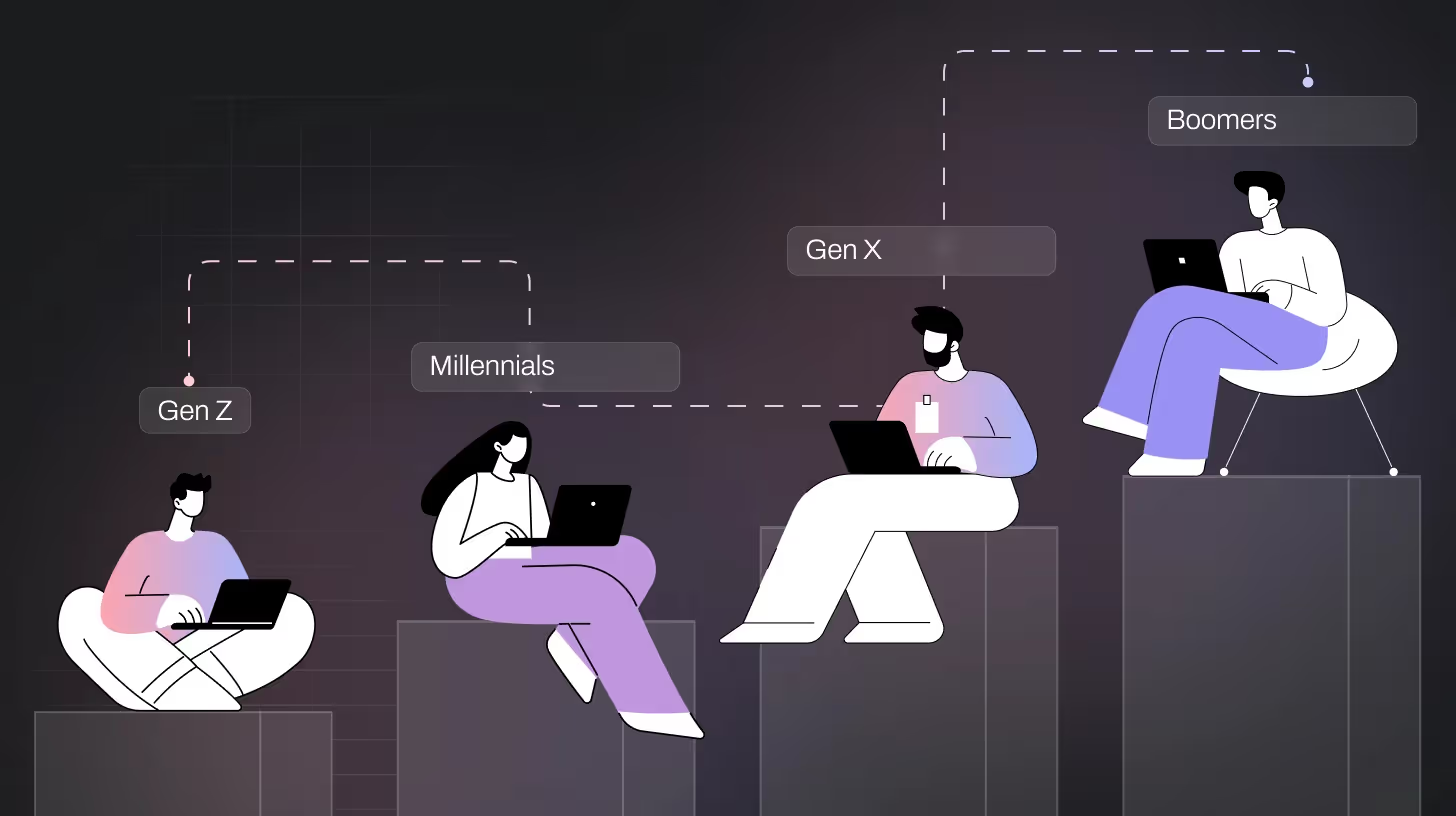
AI is all around us.
Your teenage niece asks ChatGPT to write a poem for her crush. Your Millennial coworker raves about how AI saved her hours on a slide deck. Your Gen X friend tells Alexa to lock the doors and play jazz. And your dad? He’s finally using the AI chatbot on his health app without even knowing it’s AI.
In 2026, the generational gap is not about music or slang, but about how people use technology. In this blog, we will explore how each generation uses AI, along with use cases and surprising trends.
AI Interaction by Age Group( What the Data Tells Us)
1. Generation Z (born 1997–2012)
- A Google survey of full-time knowledge workers (ages 22–27) found that 93% of Gen Z users employ two or more AI tools weekly, including ChatGPT, DALL-E, and Otter.ai. Source
- Nearly 63% of Gen Z workers worry AI may eliminate jobs, and 61% believe AI skills are essential for career advancement. Source
- 79% of Gen Z report using AI tools, and their emotions about the technology are mixed: 41% feel anxious, 36% excited, 27% hopeful, and 22% even angry. Source
2. Millennials (born 1981–1996)
- Deloitte reports that 56% of Millennials use generative AI at work. Source
- McKinsey finds that 62% of employees aged 35–44 (Millennials) report high AI expertise, higher than Gen Z (50%) or Boomers (22%).Source
- 90% of Millennials in this age group are comfortable using AI at work, the highest of any cohort. Source
3. Generation X (born 1965–1980)
- While exact Gen X figures are less frequently reported, industry data show 68% of non-AI users come from Gen X and Boomers, signaling slower adoption. Source
- Virtual assistant usage: Weekly usage of virtual assistants (like Siri/Alexa) is 14% for 41–60-year-olds. Source
4. Baby Boomers (born 1946–1964)
- 71% have never used a tool like ChatGPT, and overall, 50–68% of Boomer-aged individuals are non‑users. Source
- Just 22% of employees over 65 report high familiarity with generative AI, compared to 62% of Millennials. Source
Case Study: How AI Adoption Differs Across Generations in 2026
Case Study sourced from Gregg Wartgow’s “Understanding Generational Differences in the Age of AI”
Strategic Insights
- Millennials and Gen Z are clearly more comfortable with AI. It’s already part of how they live and work.
- Older generations (Boomers and Gen X) are still catching up, but there's real curiosity, especially if AI is helpful and easy to use.
- While Gen Z tends to trust AI more, Boomers are still wary. Building trust through transparency and a simple user experience (UX) goes a long way.
AI Interaction by Age Group: Key Use Cases in 2026
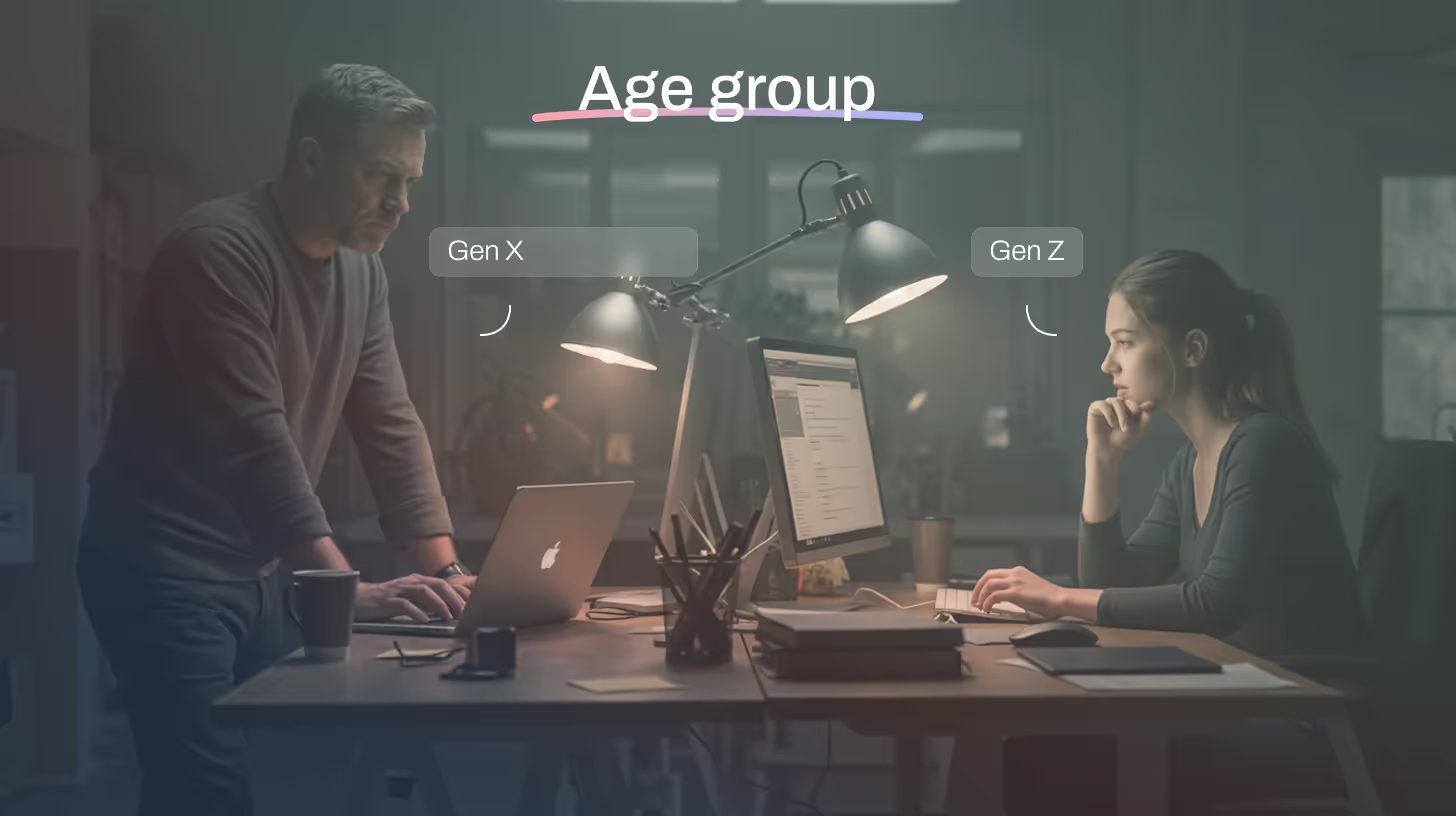
Generation Z: Creating, Learning & Earning with AI
Gen Z doesn’t just use AI; they're playing with it. This generation treats AI as a co-pilot tool, using it to write an essay, design a new business idea, or go viral on TikTok. Here are some real-world ways Gen Z is using AI in 2026:
Education & Study Help
U.S. teens and college students use AI tools like Khanmigo, Quizlet AI, and ChatGPT for tutoring, essay brainstorming, and test prep. Many schools have unofficial “AI clubs” where students share prompts or use AI to automate schoolwork in an ethical manner.
Side Hustles & Entrepreneurship
Many Gen Z teens are launching micro businesses, and AI helps in writing product descriptions, designing logos, and even handling customer support. Tools like Shopify Magic, Copy.ai, and Canva’s Magic Design are their digital partners.
Social Content Creation
Gen Z utilizes AI image generators (such as Midjourney) and video editors to create TikToks, Instagram Reels, and memes. Some even monetize AI-made content through platforms like Patreon or Etsy.
Mental Health & Self-Care
Apps like Woebot or Replika offer AI-powered support for anxiety, journaling, and mindfulness, which is especially relevant given the rising concerns about youth mental health.
Career planning
Job seekers utilize AI résumé writers, LinkedIn optimization bots, and interview coaching tools to gain entry into competitive markets.
Millennials: Power Users of AI in Work and Life
Millennials are all about efficiency, and AI fits right in. 62% of Millennials say they’re more excited than concerned about Artificial Intelligence. Here are some real-world ways Millennials are using AI in 2026:
Workplace Productivity
In the US, millennials rely heavily on tools like Notion AI, Jasper, and Microsoft Copilot in the tech, marketing, and education sectors for drafting content, managing projects, and reporting.
Parenting with AI
Need a bedtime story? A weekly meal plan? A school project outline? Millennials use AI tools like ChatGPT and Storybird AI to make parenting more creative and less stressful.
Shopping & Budgeting
AI tools in apps like Honey, Rocket Money, or even Google Shopping help find the best deals to save money and optimize budgeting.
Fitness and wellness
Wearables like Oura Ring and Whoop now include predictive AI insights on sleep, stress, and recovery, a big win for wellness-focused Millennials.
Gen X: Practical, But Cautious AI Adoption
59% of Gen X adults say they’re using AI-powered assistants and chatbots more frequently in 2026 than they did two years ago. Here are some real-world ways Gen X is using AI in 2026:
Task Automation & Calendars
Gen X professionals, particularly those in management roles, utilize tools like Calendly AI, Otter.ai, and AI-powered email assistants to stay organized and efficient.
Smart Home Automation
Whether it's setting the thermostat with Nest, automating lights with Alexa, or locking doors via voice command, Gen Xers love the peace of mind that AI-powered devices bring.
Health Tracking & Wearables
Gen X is all in on fitness, and smartwatches like Fitbit, Oura Ring, and Apple Watch utilize AI to provide insights into sleep, heart health, and recovery.
Financial Security & Fraud Detection
AI is powering fraud alerts, budgeting suggestions, and spending trackers in platforms like Chase, Capital One, and Credit Karma, helping Gen X feel more financially secure in uncertain times.
Baby Boomers: Warming Up to AI (Even If They Don’t Call It That)
Baby boomers did not grow up with AI, and many of them are still not sure about using it.
Here’s how Baby Boomers are adapting AI in 2026:
Voice Assistant Dependence
Baby Boomers are among the top users of Alexa and Google Assistant to check the weather, play oldies, manage reminders, or control smart appliances.
Customer Support & Troubleshooting
Instead of waiting on hold, Boomers are learning to interact with AI chatbots for customer service (on utility websites, airlines, etc)
Photo & Memory Apps
AI-driven tools like Google Photos help Boomers organize decades of pictures, identify people, and even create memory videos.
Bridge the Generational Gap with Smarter AI Surveys
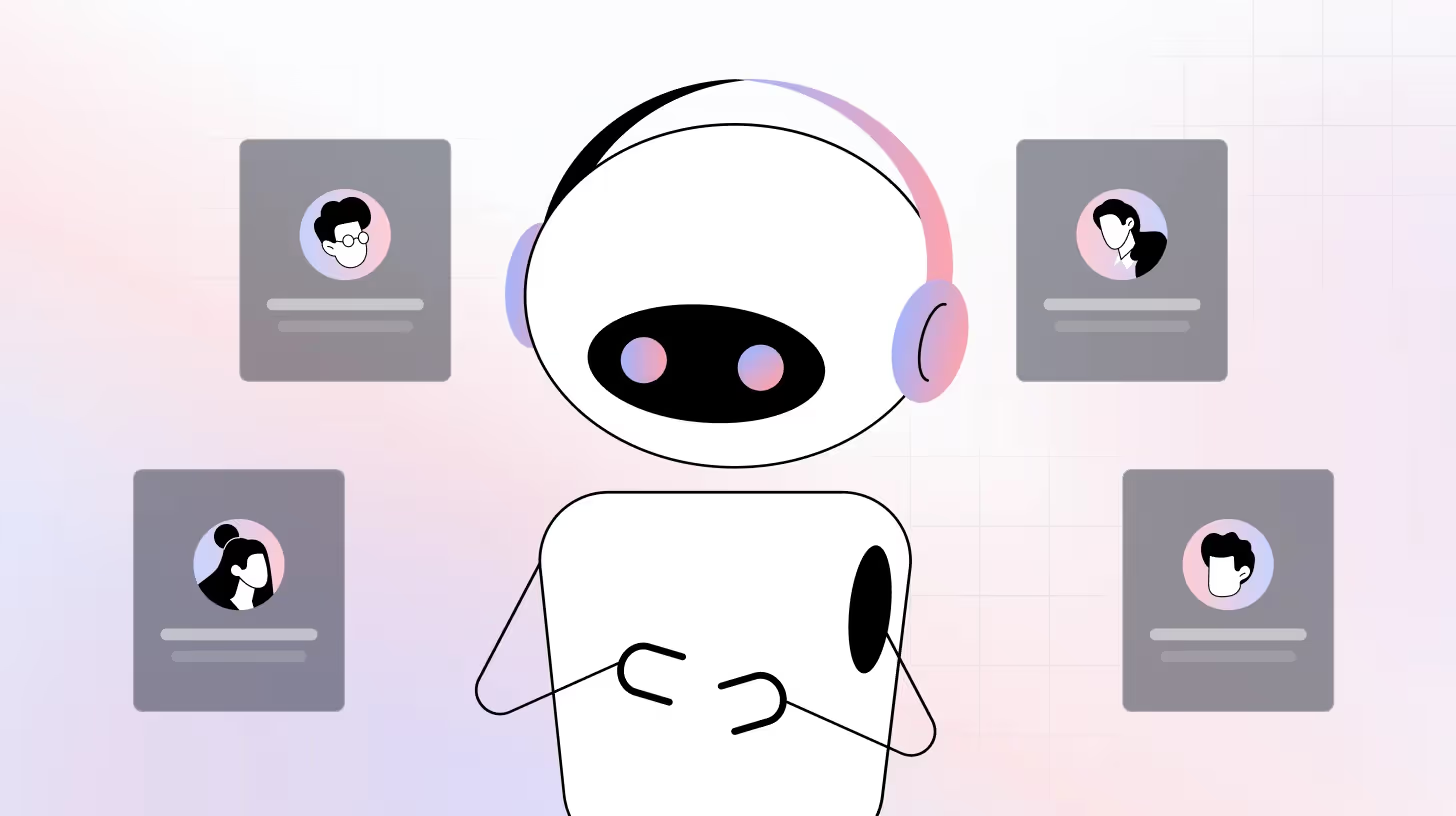
Want to understand how different generations really think about your brand, product, or service? That’s where TheySaid comes in. With AI-powered surveys and interviews, TheySaid helps you go beyond boring forms and outdated feedback loops. Whether you're gathering insights from Gen Z students or Baby Boomer customers, TheySaid adapts its tone, language, and even question flow in real-time, just like a human would. The result? Rich, nuanced insights across age groups, without the guesswork.
Key Takeaways
- Gen Z sees AI as a creative partner for learning, content, and side hustles.
- Millennials use AI to maximize productivity at work and balance personal life.
- Gen X adopts AI when it saves time or adds convenience to daily routines.
- Boomers prefer AI that’s invisible, simple, and useful.
- Trust and ease of use are critical for driving AI adoption among older users.
- AI insights must adapt in real-time to resonate with generational differences.
- TheySaid AI surveys and interviews bridge the gap by capturing age-specific feedback with human-like interaction.
FAQs
Why does AI adoption vary so much between generations?
Because every generation grew up with different tech norms, Gen Z was raised with smartphones; Boomers weren't. Comfort, trust, and exposure shape how each group uses AI.
Which generation uses AI the most in 2026?
Generation Z leads AI usage in 2026, with 70% using generative AI like ChatGPT weekly. Millennials follow closely, especially in professional settings where tools like Microsoft Copilot and Notion AI are popular.
How can brands use AI surveys to understand generational preferences?
Tools like TheySaid let brands run AI-powered surveys that adjust tone and questions in real time based on a user’s age group. This helps companies collect deeper insights across generations without the bias of one-size-fits-all surveys.





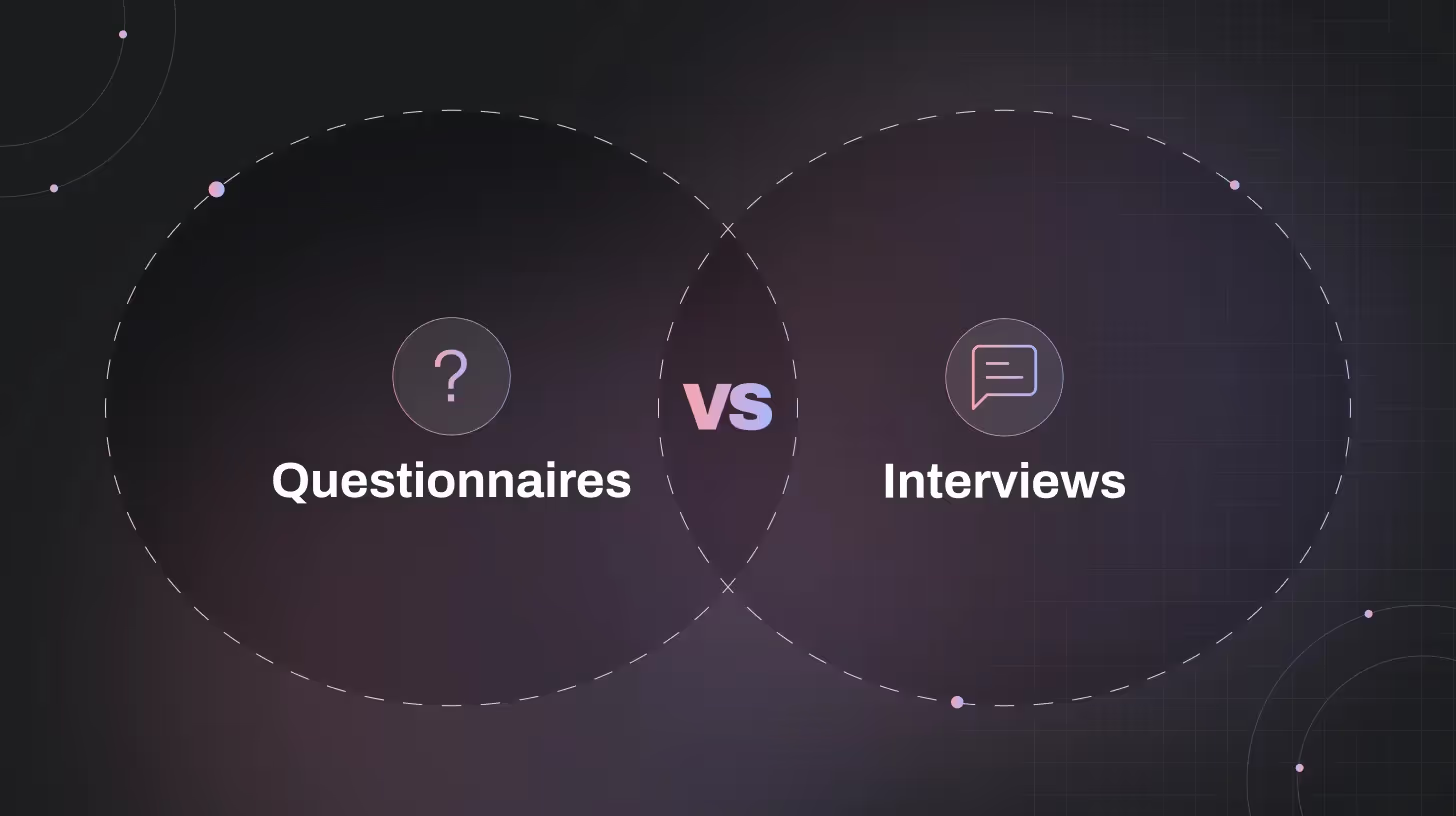
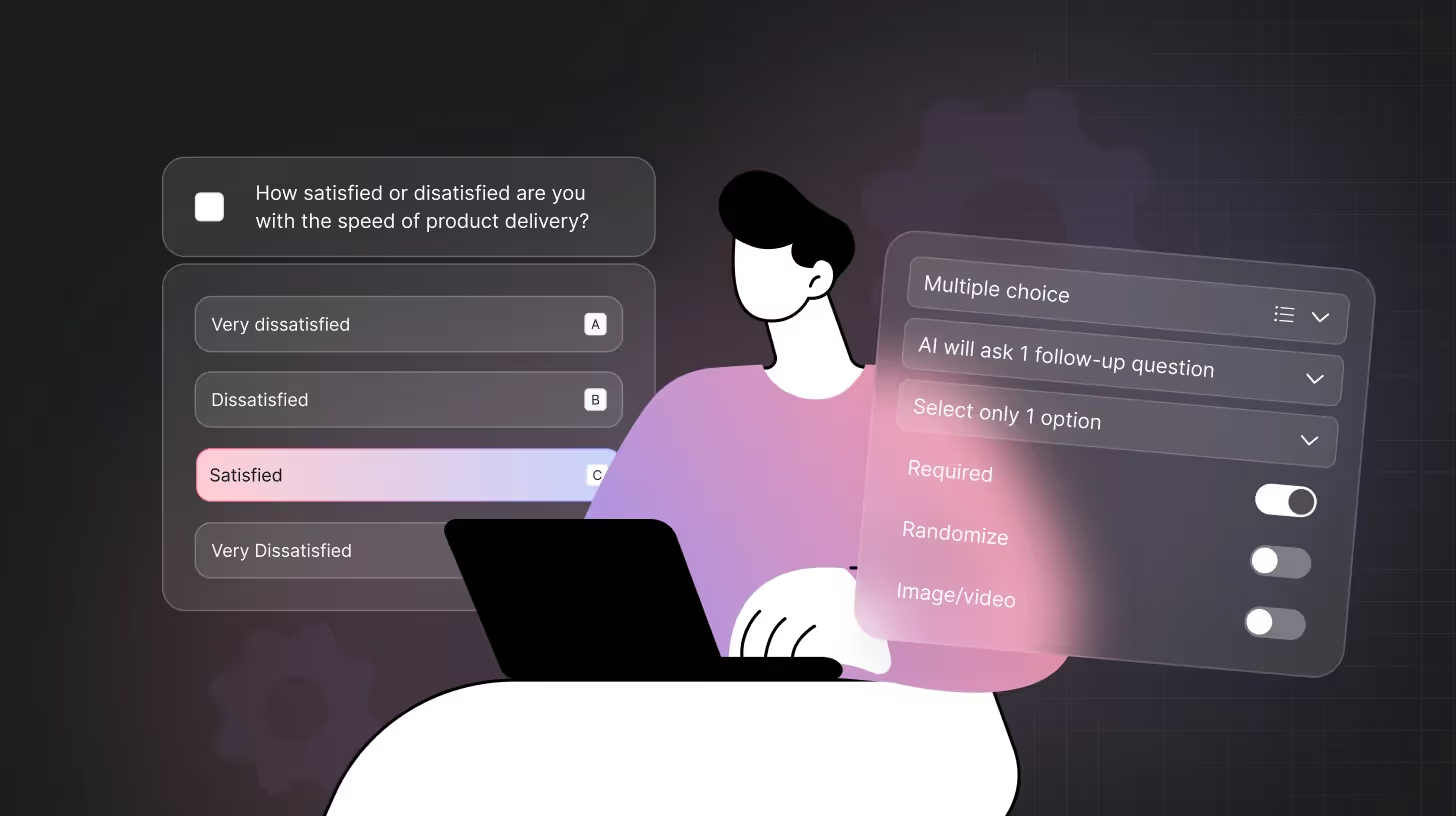
.avif)







.svg)